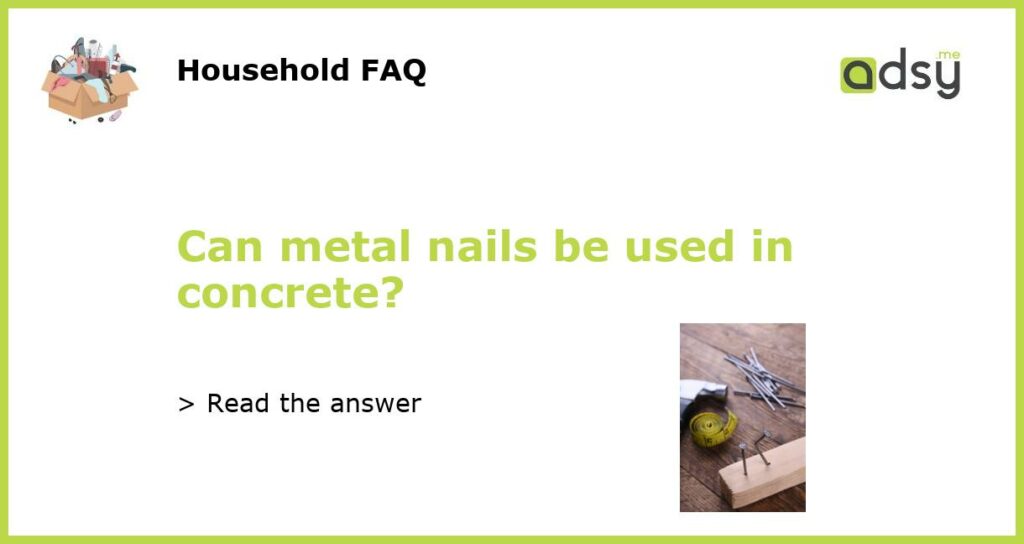Can Metal Nails Be Used in Concrete?
When it comes to building structures, concrete is one of the most widely used materials for its strength and durability. It’s common to use metal reinforcement, such as rebar, to give the concrete added strength. But what about using metal nails in concrete?
The Simple Answer
Yes, metal nails can be used in concrete, but not just any nails. The most commonly used nails are called masonry nails or concrete nails. These nails have special hardened tips that allow them to penetrate through the tough surface of the concrete. Additionally, they have grooves along the shaft that help them grip the concrete better.
Masonry Nails vs. Regular Nails
Regular nails are not recommended for use in concrete. They are not strong enough to penetrate the dense surface of the concrete and often bend or break during installation. Masonry nails are specifically designed to be used in concrete and other masonry materials, and they are made of materials that can withstand the pressure and weight of the concrete.
How to Use Masonry Nails
Using masonry nails in concrete is relatively simple. First, pre-drill a hole into the concrete using a masonry drill bit that’s slightly smaller than the nail diameter. Then, insert the nail into the hole and use a hammer to drive it in until the nail head is flush with the surface of the concrete. It’s important to use the correct size and length of nail to ensure a secure attachment.
Other Considerations
While metal nails can be used in concrete, it’s important to consider the load that will be placed on the nail. If the intended use involves heavy weight or pressure, it may be best to use an alternative fastening method, such as anchor bolts or threaded rods. Additionally, it’s important to consider the corrosion potential of the nail. If the nail will be exposed to moisture or other corrosive materials, it’s important to use a nail made of a material that resists corrosion, such as stainless steel or galvanized steel.






